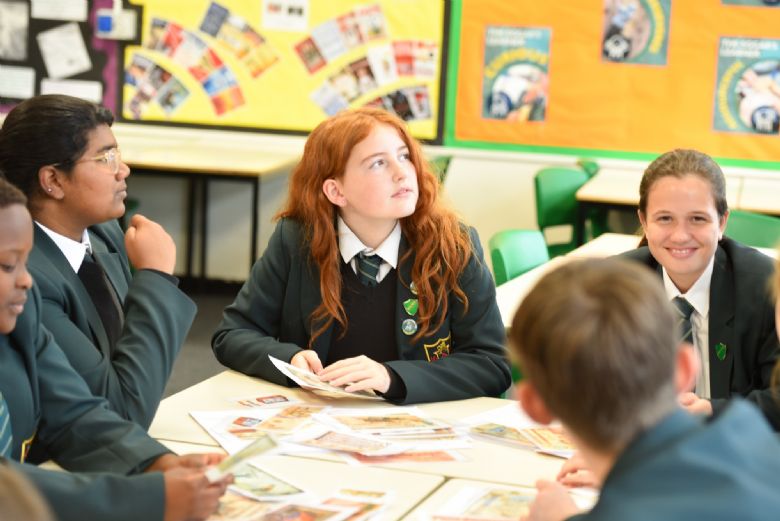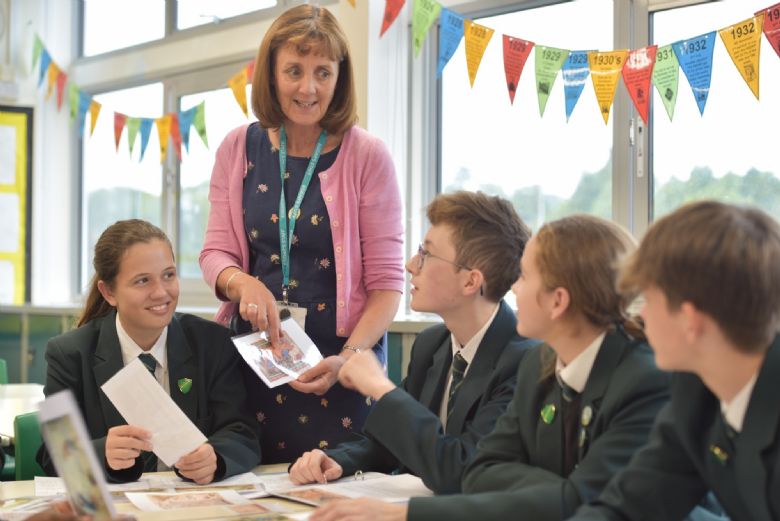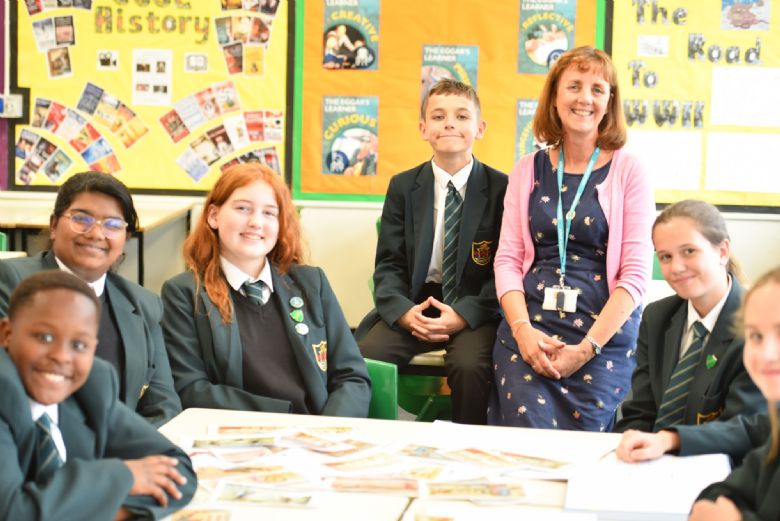Welcome to the History Department
'The farther backward you can look, the farther forward you are likely to see.'
Winston Churchill
-
Miss Sarah Hopkins - Curriculum Leader
-
Mrs Louise Smith - Teacher of History
-
Mrs Clare Daish - History Teacher & Assistant Head Teacher
What is History and why is it important?
History is the study of people, places and moments in time that have shaped our past, present and future. Without history, students would have no context in which place their lives and experiences. By studying history we learn key transferrable skills, such as how to analyse and communicate ideas and opinions, which are integral to success in all aspects of life beyond Eggar’s.
What do students learn in History?
- By the end of their studies, our students learn:
- To develop a chronological understanding of British, European and World events, c.1066 to the present.
- To analyse historical evidence, selecting appropriate material to justify and develop their own opinions.
- To recognise causes, consequences, similarities and differences across time periods.
- To prioritise significance and impact, recognising how this has changed over time.
Challenge and support in History
History encourages the development of scholarly attitudes through reading and writing, modelled on our exposition of contemporary materials. We have built a culture which instils students with curiosity about the wider historical environment, using a broad range of appropriate historical resources.
As history is all encompassing, we embrace enthusiasm from all students by encouraging curiosity and the acquisition of knowledge and skills beyond the classroom. Whilst we recognise that history is a high literacy subject, passion and enthusiasm opens doors for everyone and frequent strategies of interleaving and meta-cognition ensure everyone succeeds.
How is History assessed?
Assessment in History revolves around the key historical skills:
- Cause & consequence
- Chronology
- Interpretation
- Similarity & difference
- Change & continuity
- Diversity
- Significance

At KS3 we use End of Topic Tests (EOTT) to develop students' recall of contextual knowledge as well as a range of written style answers, including source analysis.
We follow the Edexcel 9-1 specification at GCSE and have selected four examined topics which compliment and build key themes in student understanding of the wider historical context. At the end of Yr11 students are examined over three GCSE papers, which have similar questioning strands. To prepare students for their GCSE exams we mirror KS3 knowledge testing but also extend their writing through regular and specific practice of GCSE questions, PPEs and weekly home learning to test and assess key areas of focus for student progress.
Edexcel GCSE Specification
Paper 1: Crime and Punishment in Britain C1000 - present and Whitechapel, c.1870-1900: crime, policing and the inner city. |
Paper 2: Superpower Relations and the Cold War, 1941-91. Paper two is divided into two sections and is worth 40% of the final grade in total. |
Paper 2: Early Elizabethan England, 1558-88 |
30% of final grade |
20% of final grade |
20% of the final grade |
Written exam: 1 hour 15 minutes |
Written exam: 1 hour 45 minutes. |
Written exam: 1 hour 45 minutes. |
A thematic study analysing change and continuity across 1000 years of history, including the most significant characteristics of different ages from the medieval to modern periods. For each time period, students will need to consider: |
The period study requires students to understand the events and issues of the 50 year period. Key areas are: |
The British depth study requires students to look at the Elizabeth’s reign. Key topics include: |
|
|
|
|
|
|
|
|
|
Paper 3: Weimar & Nazi Germany, 1918-1939 |
30% of final grade |
Written exam – 1 hour 20 minutes |
This is a modern depth study which looks in detail at a key period of history. Key areas are: |
|
|
|
|
Learning beyond the classroom
The History department believe that trips are an opportunity to bring History to life and are looking forward to offering the following:
Year 7: Hampton Court Palace.
Year 8: Science Museum, London.
Year 9: World War One Belgium battlefields residential.
Year 10: The Tower of London.
Year 11: Berlin Nazi Germany and Cold War residential.
Our home learning encourages further development of opportunities to engage historical talk beyond the classroom by asking students to:
-
Keep up to date with and discuss current affairs – what is happening in the news? Is this a new problem or can it be traced back in time?
-
Encourage further interest in topics – what documentaries could they watch to further their knowledge? Are there local places of interest that are linked?
-
Read widely and with interest – have they read the Horrible Histories series? How useful is historical fiction? Please see the Historical Association reading list for some suggestions.
-
Visit and enjoy trips to places of historic significance – what history is on your doorstep? Is it important to preserve items/buildings from the past?
-
Encourage active revision – do they know how to create flash cards? Which topics do they need to prioritise? Please see the Active Revision in History handout for more information on revision within the History curriculum.
-
Emphasise recall opportunities – what did they learn today? How many key dates/individual can they identify? Using GCSEPod, Seneca and BBC Bitesize to offer additional retrieval practice.

Where can History lead?
Many of our students continue to study History to A Level at one of the local colleges, choosing to specialise in Medieval, Early Modern or Modern History. As a subject, History complements itself to many different career paths and is a sought after qualification for many employers.


